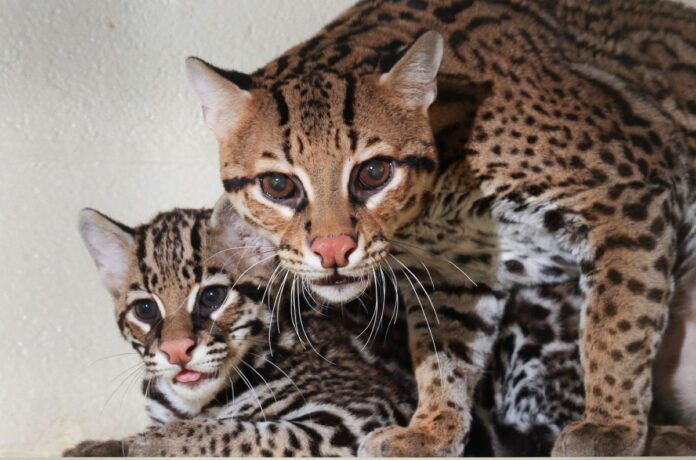RAYmondville — Rancher and philanthropist Frank Yturria and the Yturria Family Ranch are being recognized for their efforts in protecting the endangered ocelot and other wildlife.
The Botanical Research Institute of Texas has recognized Yturria and the Yturria Family Ranch with the 2017 International Award of Excellence in Conservation.
The award, presented yesterday at a gala ceremony in Fort Worth, recognized Yturria for placing 10,000 acres into wildlife conservation easements for the protection of the ocelot, aplomado falcon and other wildlife.
Thanks to that effort, today an estimated 80 to 100 ocelots thrive on the family’s Willacy County ranch, with reproduction increasing each year. BRIT said the turnaround in ocelot population is thanks to Yturria’s partnership with the U.S. Fish and Wildlife Service in the name of nature conservation.
“I’m very honored,” Yturria, 94, said in a recent interview.
Noting that his family has been in the Rio Grande Valley for more than 150 years, Yturria said he was dismayed to watch ocelots and other species become scarce as the Valley became developed over the decades, and he decided to do something about it. Setting aside thousands of acres to help ensure their survival is absolutely a worthy cause, he said.
“I figured if I don’t do something, in 50 years it’ll all be gone,” Yturria said. “If we don’t save the habitat for them, they’ll disappear.”
Yturria, who has received many awards for conservation over the years, also said he played a role in helping bring the aplomado falcon back to the Valley after its numbers plunged due to farmers using DDT. The pesticide, which was banned during the early 1970s, made the raptors’ egg shells too thin, leading to high mortality.
Yturria said that one day during the mid-1990s, he received a visit from a man representing the Peregrine Fund, who asked him if he’d be interested in helping save the aplomado falcon by reintroducing it on his land. Yturria said yes.
The raptor was common throughout the Southwest before it disappeared from South Texas during the 1940s and 1950s due to widespread loss of habitat.
“I gave him permission to go out and build platforms,” Yturria said. “They brought down these young hatchlings and fed them dead quail. Now we’ve got about 50 pairs up and down the coast. I’ve got them on my ranch at Raymondville and Laguna Atascosa.”
Other Award of Excellence recipients were J. David Bamberger, whose 5,500-acre Selah ranch in Blanco County is one of the largest habitat restoration projects in the state, and the Texas Christian University Ranch Management Program, which was founded in 1956 to teach students how to “thoughtfully and properly manage a broad range of resources while also improving them,” according to BRIT.
BRIT is a Fort Worth-based nonprofit, international research and education center that collects and safeguards plant specimens, studies and protects living plants, and teaches the importance of conservation and biodiversity.




